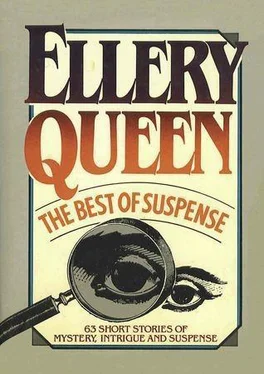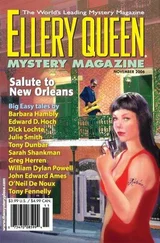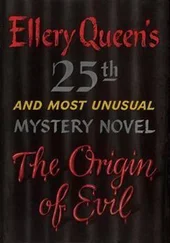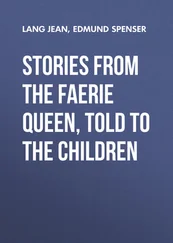A sibilance of whispers ran around the stands, gay with parasols, blazers, and boaters in the heat-shimmer, and from where I was sitting, on a bench on the pavilion terrace, I heard some woman behind me ask:
“Who are they?”
“The one with the beard and the white Homburg hat,” a man’s voice answered, “is the King.”
“Oh, how exciting! Who’s that sitting beside him?”
“That’s John L. Sullivan, the great prize-fighter.”
“Fancy the King going about with prize-fighters!”
“There’s only one John L. Sullivan, my dear,” the man said tolerantly. “He’s in London on a visit, and the King’s very taken with him. I expect he wants to show Mr. Sullivan something of our summer game. Americans don’t play it, you know.”
“How strange of them! Oh, look, there’s a different flag going up the flagstaff!”
The carriage, with its two tophatted coachmen on the box, and its two fine black horses arching their proud necks against the bearing-reins, was standing now just to the right of the pavilion terrace, in a good position to watch the game.
As the Royal Standard shimmered red-and-gold at the summit of the flagstaff, the crowd rose to its feet with a rustle, and the white-flannelled players in their various positions on the great circle of emerald turf faced the carriage and dotted their cricket caps.
The interruption was brief. King Edward VII was a great sportsman, his visit was informal, and with a genial gesture he intimated that play should be resumed.
“There seem to be a lot of policemen about, all of a sudden,” said the woman sitting behind me.
“When the King appears, the bobbies pop up everywhere,” explained her companion. “Oh, good shot! Well hit, sir!”
Raffles had struck a ball from Kortright, the fastest bowler in the world, firmly to the boundary.
“The King’s talking to Mr. Sullivan about something,” said the chatterbox.
“He’s probably explaining to Mr. Sullivan the technique of that shot A. J. Raffles just made.”
“They’re lighting cigars,” said the chatterbox. “Mr. Sullivan has a diamond ring and stickpin.”
“My dear, I beg you,” said her companion, “stop staring at the royal carriage. It’s simply not done.”
“Those poor horses! Why don’t the coachmen put nosebags on them to munch in?”
“Evidently the King doesn’t intend to stay long — probably just till the Tea Interval, which is due at four o’clock. Now, please, do pay attention to the game.”
It was at an interesting stage. Raffles had scored 73, so there was a good chance of his reaching his hundred by teatime. The sun blazed down. Except for the sound of bat meeting ball, and an occasional ripple of handclapping, an increasingly tense hush brooded over the ground as the hands of the pavilion clock crept toward the hour of four.
Suddenly, just as the burly Kortright was making his run up to the wicket to launch one of his thunderbolts at Raffles, a wild scream pierced the silence. Kortright almost fell. Recovering himself, he glared off to his left, towards the stand on the side opposite the royal carriage.
“Oh!” gasped the woman behind me. “Whatever’s happening?”
From a swirling of the crowd in the stand over there, I saw a lithe, lightly-built figure break free, vault the low rail, and run out onto the turf. The interloper wore white flannel trousers and a pink blazer. I glimpsed dark glasses under the floppy brim of a white linen hat, but it was the globular object in the interloper’s hand which wrenched a concerted gasp of horror from the crowd.
“Oh, my God!” muttered a man sitting beside me. “A nihilist!”
From the globular object, considerably larger than a cricket ball, dangled a length of fuse from which, as the interloper hurled the object, overarm, high through the air toward the wicket, trailed a thin feather of smoke.
The bomb landed in midwicket, between the two batsmen. The interloper came running on towards the King’s carriage. Bobbies raced out to head the interloper off. Seeing them coming, the interloper whipped off the floppy linen hat and dark glasses. Long hair, of a honey colour in the sunshine, rippled down over the interloper’s shoulders as, flinging up her hands, she cried out, “Your Majesty—”
Her further words were lost to me, for the bobbies were on her. Crowd and players alike were struck to immobility — all save one. Raffles, his bat raised, was running toward the bomb, which lay with its fuse smoking and rapidly sputtering on the turf.
“Leave it, Raffles!” I was on my feet, shouting at him, in panic. “Don’t touch it! Stand back!”
But Raffles slammed down his bat on the fuse. It must have been quickmatch, for it still sputtered fiercely. Raffles threw aside his bat, snatched up the bomb with one batting-gloved hand, jerked the fuse right out of it with the other.
Dropping the little that remained of the fuse, Raffles trod it out with his nailed cricket boot, and, seeing a bobby approaching at the double, lobbed the now harmless bomb to him as casually as if it had been a cricket ball.
A collective sigh of relief went up from the crowd.
“What was she shouting about?” asked the chatterbox behind me, as a group of bobbies hustled the bomb-thrower, quite a young woman, away to some waiting Black Maria. “It sounded like ‘Women of England’ and ‘concubinage.’ What’s concubinage?”
“It’s a form of — uh — subjugation,” replied the chatterbox’s escort, sounding embarrassed. “By God, though, that was quick thinking by Raffles — a jolly good show! Listen to the people clapping for him!”
“There’s a gentleman from the King’s carriage gone over to speak to him,” said the chatterbox. “Oh, look, the gentleman’s taking him to meet the King! D’you think Mr. Raffles will be knighted or something?”
“Hardly that,” replied her escort. “Still, congratulations are in order — though, of course, Raffles may merely have been thinking that he didn’t want a hole blown in the turf before he’d scored his hundred.”
“Sir,” I said, turning my head to look the fellow in the eye, “as a personal friend of A. J. Raffles, I resent that remark. No such thought would have entered his head. His action was instinctive — and typical of him.”
”I beg your pardon,” the young fellow said, with a flush. “I confess the remark was unwarranted. I gladly withdraw it. Uh, come, Daisy dear, I think perhaps we’d better go to tea now.”
The couple sidled off, the fellow shamefaced, his chatterbox companion looking back at me curiously.
I glanced across at the royal carriage. Raffles, standing beside it, still wearing his batting-pads, doffed his cap as the King shook hands with him and introduced him to John L. Sullivan. Knowing Raffles as I did, I knew he would not fail to note, as he shook hands with the great pugilist, Mr. Sullivan’s diamond ring and stickpin; but I also knew that, King Edward himself having made the introduction, Mr. Sullivan’s belongings would remain taboo as far as Raffles was concerned.
A hand gripped my arm. It was the man who had been sitting beside me.
“Did I hear you say, sir,” he asked, “that you’re a personal friend of A. J. Raffles?”
“I am indeed, sir.”
“In that case, I should appreciate it if you would introduce me to him. I see that His Majesty’s carriage is departing and the Tea Interval is now upon us. If you could arrange for me to meet Mr. Raffles during the interval, I should be most grateful. I have a proposal to make to him.”
Though he had been sitting beside me all afternoon, I had not until now taken much note of the man. Impeccably dressed in grey cutaway and grey topper, he was tall and thin, with a sallow, haughty face and a ribboned monocle.
Читать дальше












